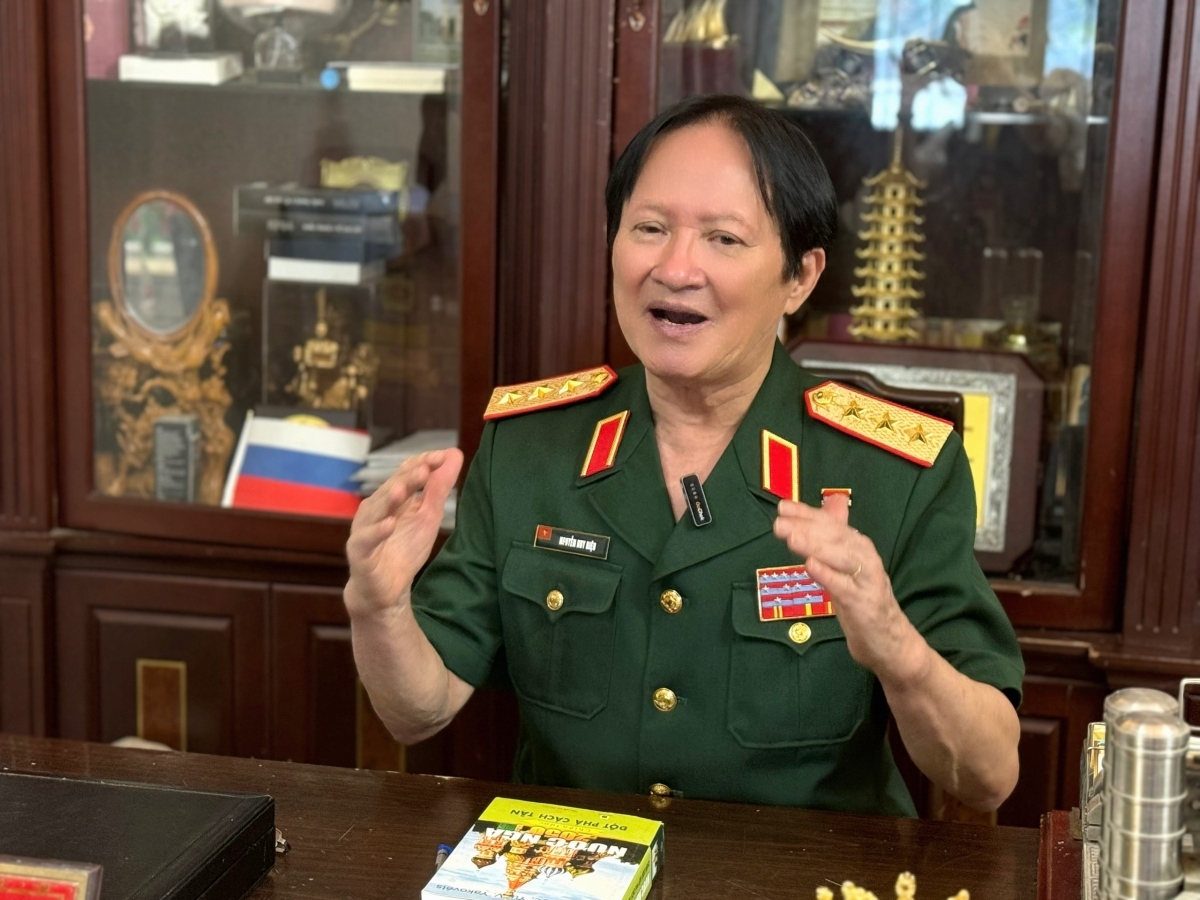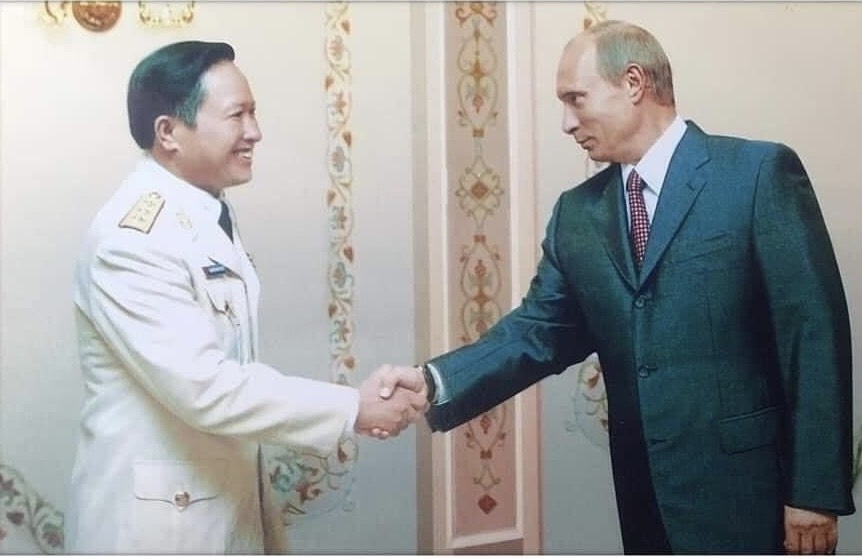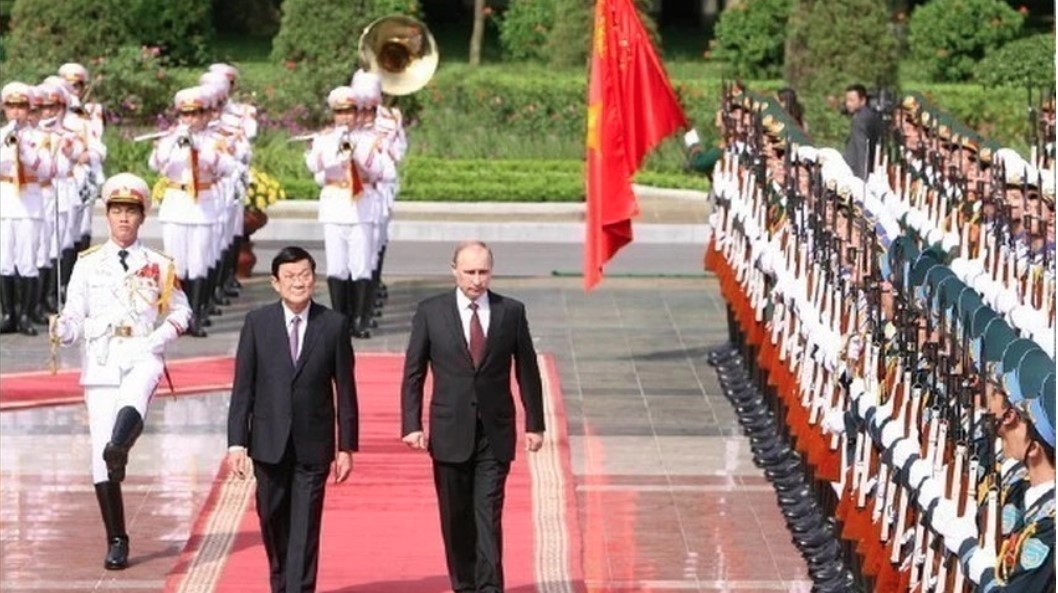
VOV.VN - Trust is the most important and valuable thing in the relationship between Vietnam and Russia, according to former Deputy Minister of National Defence, Sen. Lt. Gen. Nguyen Huy Hieu, an academician of the Russian Academy of Military Sciences.

Former Deputy Minister Hieu shared his thoughts prior to the visit to the country by Russian President Vladimir Putin in the hope that the trip will open up plenty of opportunities to bring mutual relations to new heights.
Sen. Lt. Gen. Hieu spent nine years serving as co-chairman of the Vietnam - Russia Committee on Economic, Trade and Scientific-Technological Cooperation, as well as a further nine years in charge of the Vietnam - Russia Tropical Center.
This centre is responsible for researching three basic directions: tropical durability, tropical biomedicine, and tropical ecology.
He said that it represents a "unique" organisation between both sides as it has promoted those three basic research directions in Vietnam's conditions. The two countries have been able to jointly exchange and train thousands of students, with many Russian students choosing to continue their studies in Vietnam.
With the visit of Russian President Putin, Sen. Lt. Gen. Hieu said he hopes that the occasion will add fresh impetus to both sides constant efforts to promote the tradition of comprehensive strategic co-operation, thus taking bilaterial ties to new heights as a means of ensuring regional and global security in their current conditions.
As a person who clearly understands the assistance of the former Soviet Union and current Russia given to the nation during its most difficult times, the former Deputy Minister of Defense said that the Soviet Union not only helped with weapon, but also provided training for a golden generation of Vietnamese cadres, especially the armed forces. Thanks to this contribution, the country was able to defeat the US imperialists to liberate the South for national unification.

During the resistance war fought against the US, Sen. Lt. Gen. Hieu had engaged in the Tet Mau Than (1968) General Offensive and Uprising, the Road 9 Southern Laos Campaing, the 1972 Quang Tri Citadel Campaign, and the historic Ho Chi Minh Campaign in 1975.
At that time, the South Vietnamese Liberation Army received a lot of A72 anti-aircraft guns which were designed to shoot at airplanes, B72 to shoot at tanks, and other types of equipment for the Marine Air Force and Air Defense Force.
He recalled, "Right from 1965, when the US dispatched troops to South Vietnam, our liberation army was in very difficult situations. However, the Soviet Union did not hesitate to offer help. As in the Tet Mau Than (1968) General Offensive and Uprising the Mau Than campaign, the Soviet Union helped us with all the necessary weapons and equipment for our troops and branches. At that time, the South Vietnamese Liberation Army received a lot of A72 anti-aircraft guns, and B72 to shoot at tanks and other types of equipment. of the navy, air force, air defense force.”
“During the Dien Bien Phu aerial campaign in 1972, thanks to Soviet military equipment, our air force and air defence shot down a series of B52 aircraft, forcing the US to sign the Paris Agreement in 1973 aimed at withdrawing troops from South Vietnam,” he added.

In 1977, on the occasion of the 60th anniversary of the Russian October Revolution, the former Deputy Minister was honoured to join the delegation of the Vietnam Friendship Association to visit and thank the countries that previously helped the nation.
"I was deeply moved when I saw along the way, Soviet people and students cheering "Vietnam! Ho Chi Minh! Vo Nguyen Giap! Dien Bien Phu!" They juggled us into the air, sharing the joy of Vietnam's victory," he emotionally recounted.
In 1983, when he was the Division Commander of Division 320B, Army Corps 1, he was sent by the Ministry of Defence to study in the Soviet Union along with three other division commanders. In the host country, his group had access to all the combat experience, lessons learned of the Soviet Union during World War II, and Soviet historical and cultural traditions.
In addition to acquiring knowledge and lessons about the art of war, fighting, and winning of the Soviet Union, his group was also allowed by the Vietnamese Ministry of Defence to convey all messages and experience in combating the US in Southern Vietnam, thereby enabling Russian friends to access and research in teaching.
The former Deputy Minister of Defence affirmed that Vietnamese people always believe in the country, people, and traditional culture of Russia, so even through the ups and downs of history, both sides still maintain faithful.
"Trust is extremely important. Only with solid trust can we have a solid foundation to develop strong and sustainable relations like today," stressed Sen. Lt. Gen. Hieu.
Russian President Vladimir Putin’s state visit to Vietnam from June 19-20 is expected to create a momentum for the bilateral ties to develop to a new height, according to scholars.
VOV.VN - Russian President Vladimir Putin is set to make a state visit to Vietnam from June 19 to June 20 at the invitation of General Secretary of the Communist Party of Vietnam (CPV) Central Committee Nguyen Phu Trong, marking his fifth time in the country.
Bình luận
Bình luận của bạn sẽ được xét duyệt trước khi đăng